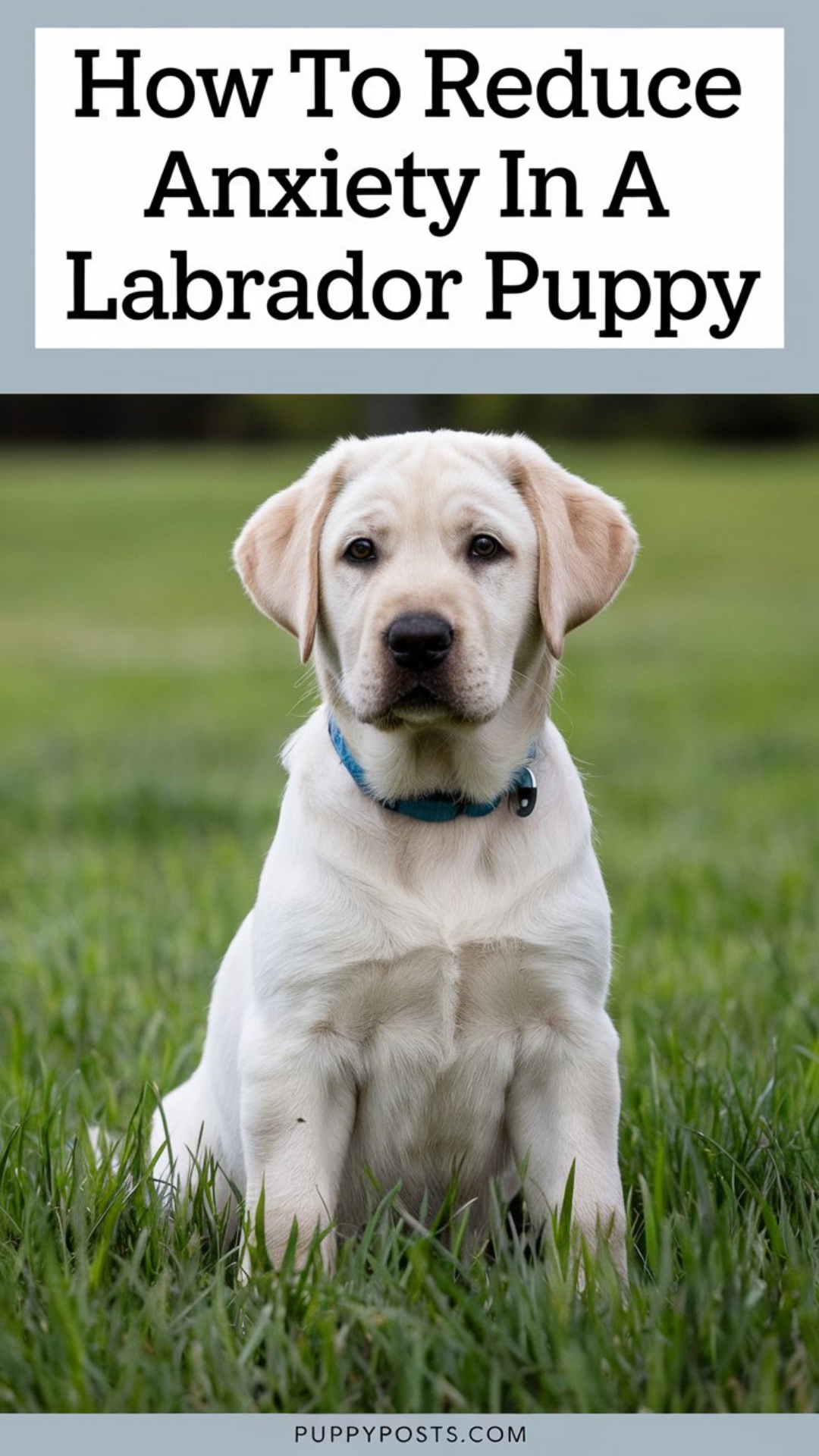How to reduce anxiety in a Labrador puppy
Listen, Labradors are friendly, energetic, and smart—no doubt about that. But even the happiest pup can struggle with anxiety if you don’t set things up right early on. I’m a veterinarian with over ten years’ experience running a sanctuary for stray dogs and cats, and I know how anxiety can slow down a Labrador’s development and make life harder for both you and your dog. The good news? You can nip anxiety in the bud with some solid steps. Here’s how you reduce anxiety in your Labrador puppy and raise a confident, happy dog.

Socialize Your Puppy Early and Positively
Socialization is the foundation of a confident dog. Introduce your Labrador puppy to different people, animals, sounds, and environments early and carefully. Keep all new experiences positive and controlled—use treats and praise to build good associations. Don’t rush; gradual exposure prevents overwhelm and anxiety.
Establish a Consistent Routine
Dogs love routine, and Labradors are no exception. Regular meal times, play sessions, potty breaks, and rest periods help your puppy know what to expect. That predictability creates a sense of safety and reduces anxiety. Stick to your schedule, even on weekends.
Create a Safe Space for Your Puppy
Give your puppy a quiet, comfortable spot where they can retreat when things get overwhelming—a crate or a cozy corner with their bed and toys works well. This safe space helps your Labrador decompress and feel secure, which is essential for reducing stress.
Use Positive Reinforcement Training
Training builds your puppy’s confidence and strengthens your bond. Keep sessions short, fun, and reward-based. Avoid harsh corrections or punishment—they only increase anxiety and damage trust. Teach simple commands and reward calm, obedient behavior.
Provide Plenty of Physical and Mental Exercise
Labradors have plenty of energy and intelligence to burn. Regular walks, playtime, and mental challenges like puzzle toys or obedience drills help reduce nervous energy and keep anxiety in check. Just make sure exercise suits your puppy’s age and health.
Be Calm, Consistent, and Patient
Your puppy picks up on your emotions. Stay calm and confident—don’t let frustration or stress show. Consistent, patient leadership gives your Labrador a solid foundation and reassures them when they feel uncertain.
Watch for Early Signs of Anxiety
Pacing, whining, excessive licking, trembling, or destructive behavior are red flags. Spotting these signs early means you can act fast to calm your puppy. If anxiety persists or worsens, don’t hesitate to consult your vet or a professional behaviorist.
Reducing anxiety in a Labrador puppy takes time and effort, but it’s worth it. Early socialization, routine, positive training, and your calm guidance will help your puppy grow into a confident, joyful dog that’s a pleasure to have around.







